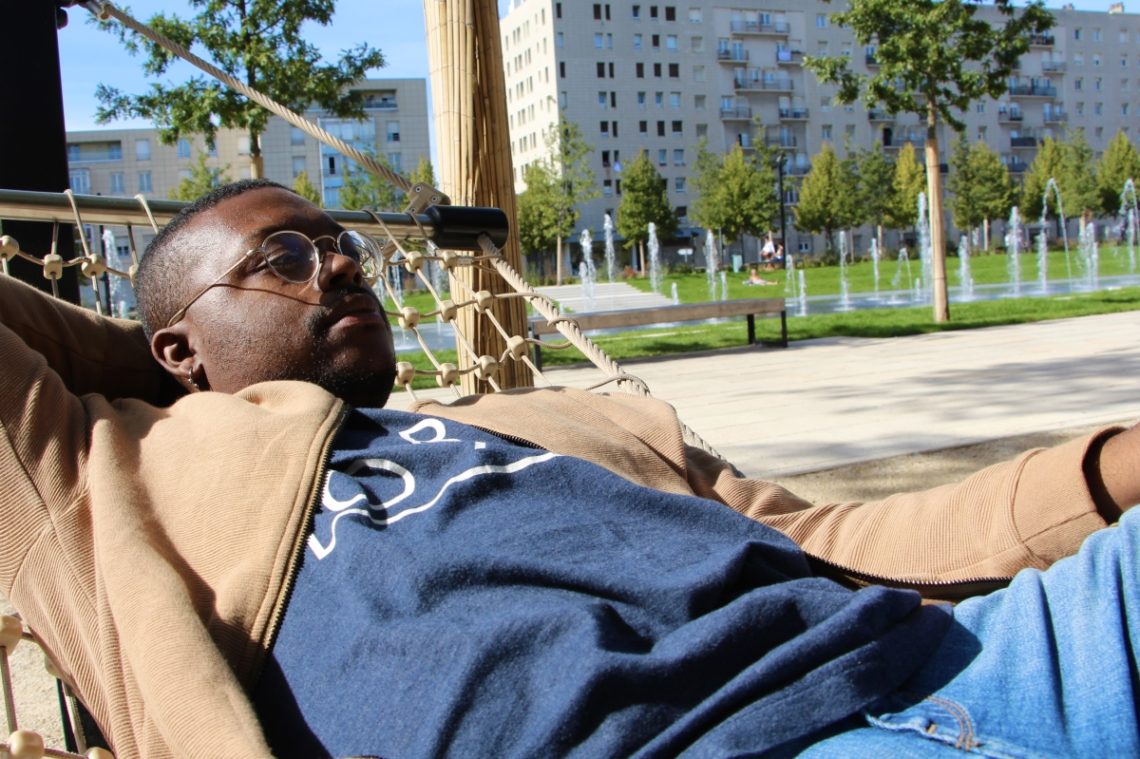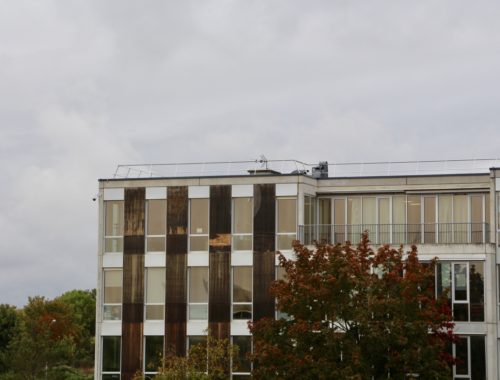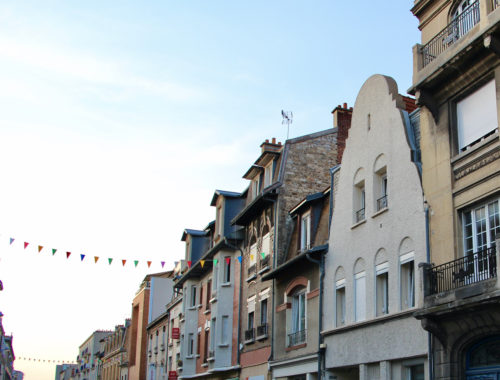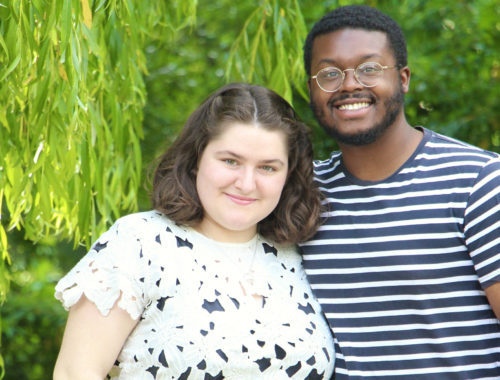
Applying for a Master’s Degree in France: Important Documents
Note: This information is accurate as of September 23rd, 2020.
Applying for a master’s degree in France can be a daunting process, especially when it comes to getting your hands on all the documentation required to do so. Before applying for our master’s degrees in France, Maria and I were not altogether sure what documents we might need, so we had to find out by jumping into the process headfirst. We’ve compiled a list of everything that we needed to apply to our programs for you to consult so that you can be as prepared as possible.
“Applying for a Master’s Degree in France” is a series of articles aimed at helping foreign students, especially Americans, apply to master’s programs in France by providing the information they need all in one place. In today’s article, we will be listing all the documentation that we needed to apply for our master’s degrees.
Before reading on, please keep the following in mind. This information pertains to our Études en France application, Campus France’s portal for applying to universities in France. If you are from a country that does not use the Études en France platform, some of the information below may not apply to you.
1. Identity Photograph
You will need a clear and well-lit photo of yourself. The picture needs to be primarily of your face, but can include your shoulders as well. The file must be in one of two formats, .JPEG, or .PNG. Be sure that the file does not surpass 50 kilobytes in size.
All of the documents that follow must be uploaded to the Études en France platform in one of three forms: .PDF, .PNG, or .JPG. None of the following documents should surpass a file size of 300 kilobytes.
2. Photo Identification
For our photo identification, Maria and I uploaded scans of our passport information pages. This includes both the page with your photo and the page with your signature. In a United States passport, these pages are back to back and easy to scan together.
3. Resume/CV
Make sure that your resume or CV is updated and includes information relevant to your desired programs. Master’s programs in France are often interested in your relevant work experience, not just your previous academic pursuits.
4. General Cover Letter
A cover letter, or lettre de motivation, is a good thing to add to your application, as it can help further explain your motivations and qualifications. It also gives you a chance to convince admission panels that you are a good fit for their program. In our general cover letters, we discussed our academic and professional experiences, our career goals, our motivations for wanting to study in France, our interest in our fields, and how all of these things tied into the need to study at the institutions to which we were applying.
5. Letter of Recommendation
Getting letters of recommendation can really bolster your application by showing that people who have worked with you, in either a professional or academic capacity, vouch for the abilities that you’ve listed in your resume or CV and in your cover letter. We asked one of our undergraduate professors to write this letter for us on official, university letterhead, and to send it to us so that we could upload it to the platform.
6. Work Contract from TAPIF
In order to show that we had work experience in France and demonstrate that we were familiar with French life, culture, and education, we decided to upload proof of our Teaching Assistant Program in France (TAPIF) experience. If you do not have a similar experience to highlight, that is okay! However, if you have any work experience abroad, or any proof of staying in France for an extended period, these would be a nice things to add to your application.
7. ENIC-NARIC Statement of Comparability
The statement of comparability from ENIC-NARIC, or l’attestation de comparabilité, is a document that conveys to French institutions to what French degree your previous degree, or years of higher education, is equivalent. Our bachelor’s degrees were deemed equivalent to a French licence, and therefore, the French institutions to which we applied knew that a master’s level education was appropriate for us. Be aware that this document cost us 70 € and can take up to 3 months to receive from the time of your request.
8. Scan of College Diploma
To obtain a statement of comparability, you must provide ENIC-NARIC with a scan of your physical diploma. Because we already had the scans of this document, we decided it would be a good idea to upload it to the Études en France platform. Even though it wasn’t explicitly required, we wanted the universities to be able to access it as well.
9. College Transcripts
Any transcripts that you have from your most recent education are imperative to upload, because they are proof of your education and exemplify your ability to succeed in school. Remember that you are applying for master’s-level education, meaning that the coursework will be challenging. Schools will want to see that you were able to handle the demands of your previous schoolwork.
10. Translation of College Transcripts and Diploma
To ensure that our transcripts and diplomas were fully understood by the admission committees, we used RushTranslate to get a French translation of our college transcripts and diplomas. We paid $175 each for this service that was both fast and accurate.
11. DALF C2 certificate
Most master’s programs in France require that foreign students have a certain level of French. This requirement is waived if you have done most of your schooling in French or if you come from a country where the official language is French. We applied to master’s programs that required anywhere from B2 to C2 French, so make sure that your certified level of French is in line with the requirements of your desired programs.
12. DOCBOX Receipt & Admission Cover Page
The last documents that Maria and I needed to apply for our master’s degrees were the DOCBOX receipt and the admission cover page. After submission of your Études en France application, Campus France stresses that the process is not complete until you visit the Campus France DOCBOX website in order to pay the Campus France fee and download the admission cover page. Here, you will be prompted and guided through the process of paying your Campus France fee, receiving your receipt, filling out the admission cover page, and uploading those two documents to DOCBOX.
That’s all of the documents that we needed to apply for our master’s degrees in France via the Études en France platform! It is imperative that each individual ensures they have all the documents they need as different situations may call for different documents. It is also common for certain university programs to require specific documentation that others may not. Make sure that you are in contact with your desired programs to ensure that you are providing all the documentation that they request.
We hope that this article helped to answer some of the questions that you had about documentation in relation to applying to a master’s degree in France as an international student. Start getting those documents in order, because the earlier you are prepared, the better! Let us know if you have any questions in a comment below.
Check out the other articles in our Applying to a Master’s Degree in France series:
- How to Choose a Program
- How to Complete the Online Application
- Detailed Application Timeline
- Campus France Phone Interview
- Will You be Accepted to a Program in France?
- Accepting an Offer of Admission
Check out our video about why you should study in France!
You May Also Like

Applying for a Master’s Degree in France: Phone Interview Secrets
November 4, 2020
Striking Statistics About Studying in France You Didn’t Know: 2021
October 6, 2021


10 Comments
Adriana
This is great! Do you think I could take the DALF in January or even as late as March before applying to a Master’s program? I already have the B2 certification from a few years ago but I want to take the C2 test in case…
Jalen & Maria
Hi Adriana, you should check out our article about the DALF C2 where you’ll find the website that details the different testing dates and sites available. To make the best decision for yourself, find a testing location and time that works for you and see how long it typically takes for results to come back. It seems to us that March might be cutting it kind of close, but that is just our personal opinion. Thanks for reading and good luck!
Michael
This is a great resource. Thank you guys!
Jalen & Maria
Happy to help! Thanks for reading.
Naomi
Hey,
I am an American as well who got my BA in Los Angeles and currently am obtaining my Master’s degree at Grenoble Ecole de Management (GEM). I did not need some of these documents for my application such as the ENIC-NARIC Statement of Comparability, the Translation of College Transcripts and Diploma, the DALF C2 certificate, or the DOCBOX Receipt & Admission Cover Page. MY school is a Grande Ecole and my program is English taught. Why do you think you needed those extra forms and I didn’t ?
Jalen & Maria
Hi Naomi, we would have to know more about your application process to GEM to best answer your question. We solely went through the Études en France platform from the beginning to the end of our application process and these are the documents that we either decided to provide or were required to provide by either Campus France or specific university programs. We encourage you to check out the penultimate paragraph of the article to better understand why you may have needed different documentation than us. For example, your program is taught in English while ours are taught in French. This may explain why we needed to prove that we could speak and understand French with our DALF C2 certificates and why, for you, it was unnecessary. Thanks for reading!
Naomi
That is true as well. My school is also a Grande Ecole, and I know that the processes between the public and private French schools can be different. From my research, it looks like many of the Grande Ecole’s like ESSEC and HEC have their own separate platforms where I do not necessarily need to rely on etudes de France fully. That is a possible theory. Anyways, I look forward to a future video about how your studies are going. We attend online until November 2nd, then we switch to in-person. How about you ?
Jalen & Maria
Yes, that’s right. At the moment our classes are in person for the most part, but we will have to see how things develop with the evolution of the sanitary situation. Good luck with your studies!
Kayla
Hey Jalen & Maria!
I’m just curious about the ENIC-NARIC. Is that a required document that you had to provide or was that something you guys decided to add just to boost your application a little more? I’m just wondering because I haven’t received my bachelors degree yet, I’m expected to get it in June, so I don’t really have a degree that I could send. Thanks for this awesome Masters series, it’s been helping me a ton!
Jalen & Maria
Hi! We are so glad you are finding our articles helpful. The ENIC-NARIC equivalencies were not required. After doing some research, we decided it could be an advantage to include them in our Campus France applications. The best course of action for you would be to contact your prospective schools to ensure that they don’t require the ENIC-NARIC equivalency or any other documents that Campus France doesn’t prompt you to include. Good luck!